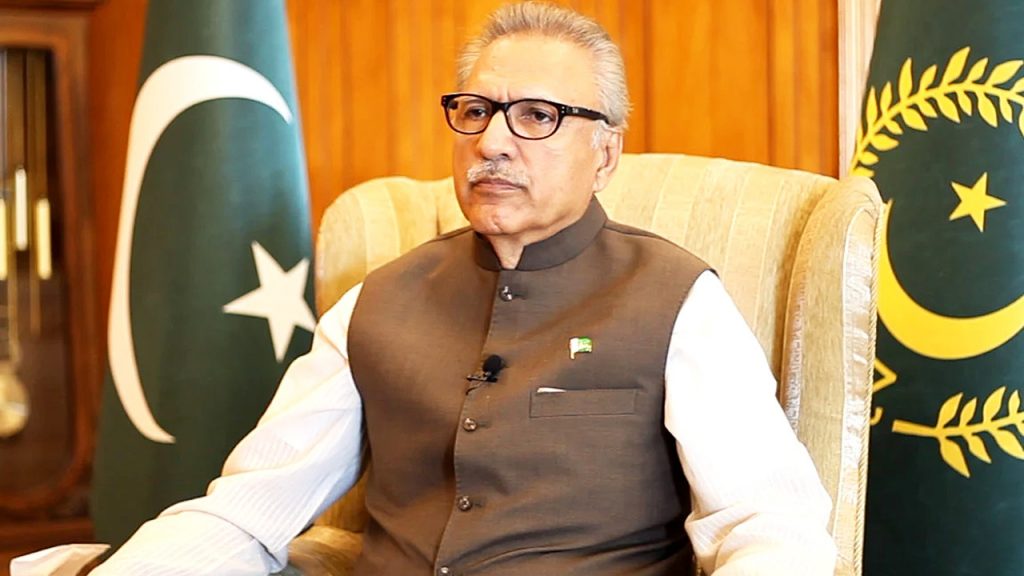Islamabad: Pakistan’s top election official Thursday declined an invitation of President Arif Alvi for a meeting to set a date for the general elections, saying under the changed law, the head of the state has no role in determining the poll date and as such there was no use in having a discussion.
The president wrote to Chief Election Commissioner Sikandar Sultan Raja Wednesday, inviting him to meet “today or tomorrow to fix an appropriate date” for general elections. Alvi cited the constitutional requirement for the president to decide a date for general elections within 90 days of the dissolution of the National Assembly (NA).
The National Assembly was dissolved August 9 which makes it mandatory for the Election Commission of Pakistan to hold polls within 90 days after the dissolution. However, the ECP is set to delay the election in order to carry out delimitation in the light of the new census, which is also a constitutional requirement.
Raja after consultations with officials of the Election Commission of Pakistan (ECP) wrote back to the president to remind him that under the changed laws, Alvi has no role in determining the election date and there was no use in having a meeting.
Alvi, 74, was a senior member of jailed former prime minister Imran Khan’s Pakistan Tehreek-e-Insaf party before assuming the presidency.
It is “imperative” to point out that Section 57 of the Elections Act had been amended by Parliament June 26, empowering the ECP to “announce the date or dates for the general elections”, Raja wrote.
“Where the president dissolves the National Assembly, at his discretion, as provided in Article 58(2) read with Article 48(5) of the Constitution then he has to appoint a date for the general elections. However, if the assembly is dissolved on the advice of the prime minister or by afflux of time as provided in Article 58(1) of the Constitution, then the commission understands and believes that the power to appoint a date or dates for elections rests exclusively with the Commission.
“The commission believes with the utmost respect that the reliance placed on the provisions of the Constitution mentioned in your subject letter is not applicable in this context,” Raja’s letter said.
He said the ECP was taking its responsibility of holding general elections in the country “very seriously” and had also invited major political parties to give their views on the electoral map.
Raja underscored that the delimitation of constituencies, after the approval of the digital census, was one of the “foundational legal steps” towards holding polls.
“In view of the above, the commission (ECP) is of the considered view that participation in the meeting would be of scant consequence,” he said.
Alvi, apparently stung by the letter, resorted to social media and said that he had sought the law ministry’s advice on the letter by the ECP chief.
“The Presidency has asked for advice on the Election Commission of Pakistan’s stance that only it had the authority to decide the election date,” he said in a statement on X.
Political parties and the legal community are divided over the issue of delay and a petition has also been filed in the Supreme Court to seek guidance on the issue of holding elections on time or delaying the process until new electoral districts are set up.
PTI
